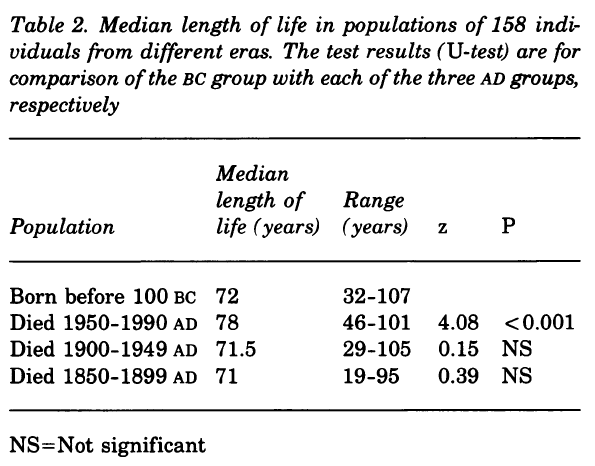During an academic course on the history of biology there was a lecture dedicated to ancient Greek philosophers. I noticed that surprisingly many of these philosophers reached age considered advanced even nowadays: 80 years, 90 years and more. I expressed my surprise, noting that as far as I knew, life expectancy had been far lower in ancient times.
According to the professor, the common knowledge that in ancient times people 30, 40 years old had already been considered very old was a myth. He said that life expectancy, defined as the mean length of life had been greatly reduced in ancient times by high child mortality and casualities in many wars. However, he elaborated, people who managed to survive childhood and avoid being slaughtered in wars had had roughly the same chance to reach advanced age as contemporary people.
A similar claim can be found in a cracked.com listicle, as the #1 myth about the Middle Ages (scroll down because they are listed in reverse order).
The Reality: As for lives being short, while it may be true that the average life expectancy was 35 years, we tend to overlook one very important word there: average. Infant mortality was brutal, since vaccinations against childhood diseases didn't exist yet and medicine was still in its "Here, chew on this root and stick some leeches on your junk" stage. So that skews the average way down. But if a male living in 1500 managed to see his 21st birthday, he was expected to live around 50 more years from that point.
Is this correct? Because if it is, then how does this relate to the effectiveness of the modern medicine? And indeed, I've already heard people (in my family) using this very argument to condemn the recommendations of the WHO as "ineffective" and instead support "natural" approaches to treatment like the paleo diet.

